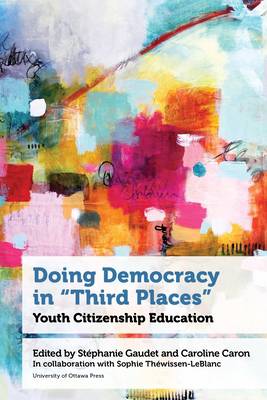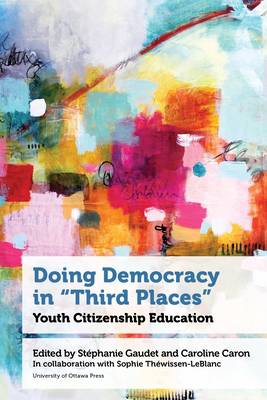
- Retrait gratuit dans votre magasin Club
- 7.000.000 titres dans notre catalogue
- Payer en toute sécurité
- Toujours un magasin près de chez vous
- Retrait gratuit dans votre magasin Club
- 7.000.000 titres dans notre catalogue
- Payer en toute sécurité
- Toujours un magasin près de chez vous
Doing Democracy in Third Places
Youth Citizenship Education
Livre broché | Anglais
27,95 €
+ 55 points
Description
Resulting from a collaborative approach, Doing Democracy in "Third Places" presents the results of multi-site ethnographic research in seven Quebec civil society organizations. It reports on observations, analyses and comparisons of a diversity of innovative citizenship education practices aimed at young people in these "third places", i.e. socialization spaces different from school and family.
Focusing on the presentation of case studies, the book reveals the diversity of formative experiences offered to young Quebecers. The pooling of case analyses leads to a fruitful reflection on education for democratic citizenship through a plurality of citizen experimentation practices rooted in the defense of children's rights, feminist social action, the community movement, alterglobalism and municipal and school public action. With its original conceptual vocabulary and qualitative methodological approach, this book will help to push back the geolinguistic and disciplinary boundaries that often separate research currents closely or remotely related to the social and political engagement and participation of young people. Written in an accessible style, it is aimed at a wide audience, including youth organization staff, graduate students, the youth policy sector and anyone interested in the issues surrounding youth citizenship in the 21st century.Spécifications
Parties prenantes
- Editeur:
Contenu
- Nombre de pages :
- 280
- Langue:
- Anglais
Caractéristiques
- EAN:
- 9780776641751
- Date de parution :
- 08-04-25
- Format:
- Livre broché
- Format numérique:
- Trade paperback (VS)
- Dimensions :
- 152 mm x 229 mm






